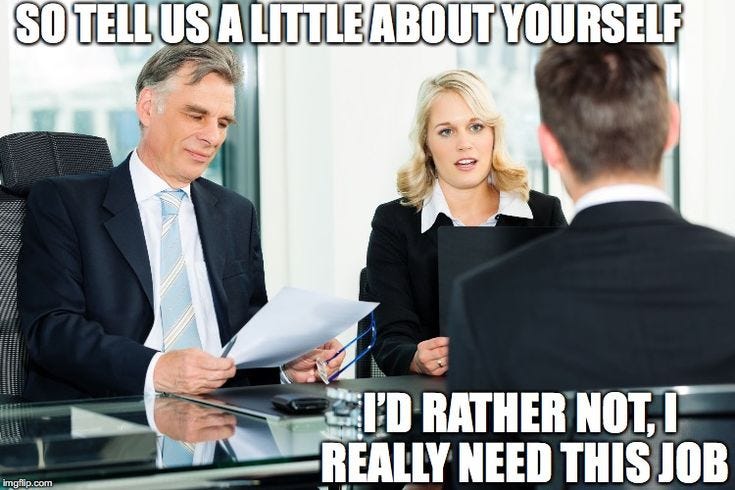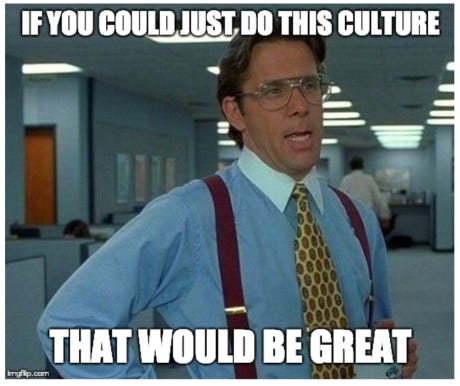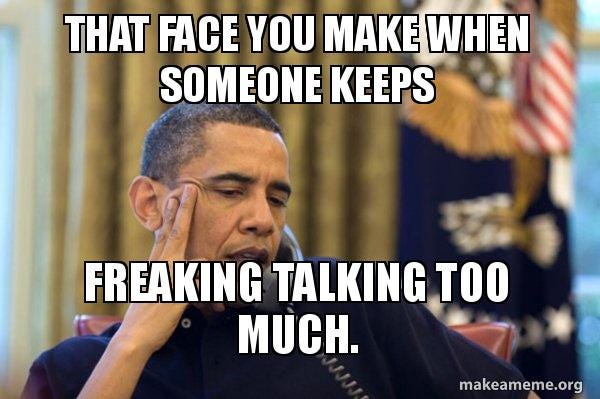The Ultimate Guide to Behavioral Interviews
Your go-to article on how to prepare and crush your next behavioral interview + 85 real Amazon case questions.
Behavioral interviews are one of the most deceptive.
They seem easy on the surface. It may appear as if you can get away with pure improv. In most instances, you can’t.
They require you to do your homework. Do diligence on the company of interest. Prepare your stories and align them with the expected cultural principles.
Here’s a definite guide that will help you make a leap from “an average Joe” to an “Amazon-bar hire”.
Today’s article
Breaking down the behavioral interviews. What is it? What do they evaluate?
Pitfalls to avoid. Surefire pitfalls that will kill your interview chances.
🔒 Crafting an ideal answer. How to prepare to crush behavioral questions and the perfect interview answers.
🔒 Advanced tips. How to go beyond what’s expected.
🔒 Case Library. An Amazon case library with 85 real questions that were asked in 2024.
📝 Word count: 5300 words
⏱️ Reading time: ~15 minutes (w/o questions), ~40 minutes (incl. questions).

🧩 Breaking down behavioral interviews
❓What is it?
Behavioral questions typically begin with the phrases like:
Tell me about a time when …
Give me an example of …
How do you …
Have you ever …
Describe a time when you …
What do you do when …
They are extremely popular, and there’s almost a 100% chance you’re going to face one at any stage of the interview.
There’s a reason why they are so widely used. Behavioral questions are highly predictive of a future candidate’s behavior in a job (e.g., a study by Quintessential Careers claims that it is true in ~55% of cases).
🧐 What is being evaluated?
Each behavioral question is targeted at assessing the:
Competencies;
Alignment with the cultural principles.
Below I’ll share my own experience as an interviewer and the aspects that I’m looking at.
Competencies
A candidate’s answer is indicative of multiple things:
Is there a clear structure to it? (precursor to systemic thinking)
Is there a focus on business results? (being impact-driven)
Is there depth and curiosity in understanding the customer? (customer focused)
How crisp and engaging is the narrative? (storytelling)
What is the candidate’s motivation to join the company? (it is intrinsic or just status/title/relocation related)
Aside from skills alone, candidate’s maturity shows through the responses.
Were the answers scripted or lived via the blood, sweat, and tears of an actual experience?
Alignment with cultural principles
Many top-tier companies rely on behavioral questions as a validation of the culture-fit.
Questions are typically framed in such a way that the interviewer expects you to display a certain “cultural principle” that the company embodies.
In the most generic sense the cases revolve around: leadership, conflict resolution, problem solving, teamwork, comms, you adaptability, decision-making, stress management and time management skills.
In more specific cases, you will be expected to show “Bias for action”, “Invent and simplify”, “Learn and be curious”, “Think big” e.t.c.
How many questions you should expect?
There’s a range.
In an average second-tier company, you should expect around ~5-10 questions, starting as early as the HR screening stage.
On the other side of the spectrum are companies like Amazon. You can expect to be grilled during their “bar raiser” interviews and strenuous on-site loop rounds (spanning from 9am to 5pm non-stop).
According to my acquaintances who have interviewed at Amazon, you can easily expect between ~25-40 of such questions.
Very few candidates make it without the prep work and investing time in thinking through their narratives.
❗What can kill your chances
A candidate is asked, “Can you tell us about a time you failed and what you learned from it?” He thought for a moment and then said, “Well, I failed an interview just last week for a job very similar to this one, and I still don’t know why.”
Don’t be like that candidate.
Here are the top pitfalls that will kill your chances during the interview.
❌ Lack of prepwork
Good answers require preparation.
Most of us are not improv comedians, and we cannot come up with inspiring stories off the top of our minds.
That is ok, and nobody expects you to improvise.
Just do your homework beforehand and craft those stories.
More on those in the preparation and advanced tips sections.
❌ Long-winding answers
I typically start the interview with the self-intro.
There’s a hidden reason for it.
Not only am I being polite, but in the background, two things are happening.
First, I’m asking the candidate the classic “Tell me about yourself” question.
Second, I’m giving away a template or an ideal expected response.
I’ve timed my intro; it usually takes about a minute.
However, certain candidates just ignore it and dive into the escapades of their experience. They might shift from role duties to impact, to biggest wins, and even agile processes.
In extreme cases, the response took an unbearable ~10 minutes, eating away time from the follow-up cases.
Don’t try to mix multiple answers into this one, just focus on your core experience.
❌ Too robotic
What makes any interview go south are unengaged, robotic answers.
It’s like you’re listening to an AI script that has been worn out to the extent where a candidate doesn’t really care.
Typically, that happens with answers that are scripted and lack emotion.
This first impression that a candidate forms can overshadow the whole interview.
❌ Over-selling yourself
The fact that you’ve gotten to the interview stage already tells a lot.
Your experience and tenure speak for themselves.
Many candidates oversell their wins with arbitrary impact numbers, which are impossible to verify.
What’s worse, it’s not always feasible to decouple the business or team impact from the individual contribution of the candidate.
Be cautious and only answer the questions that are directly asked.




